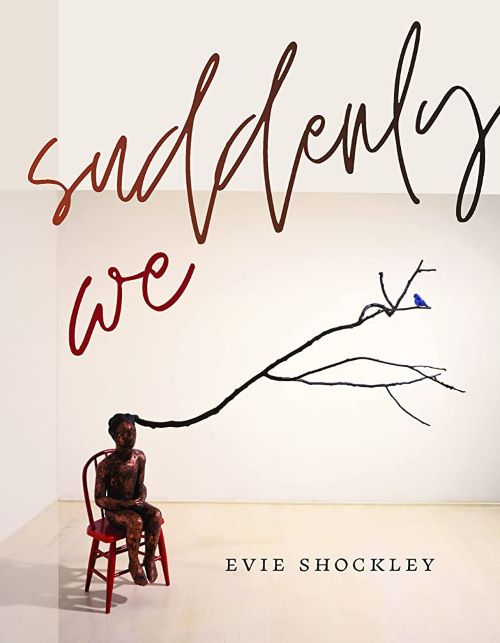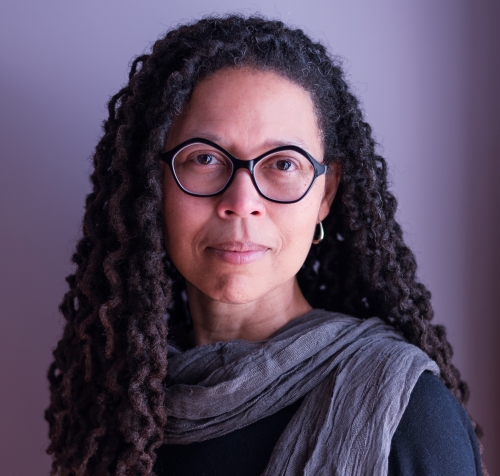Language as Form: Remake and Renew
I often hear and see poets say that their poems begin with a bit of language. I’ve said this myself! Sometimes, I discover, what the poet means is that a group of words have coalesced, gradually or suddenly, in that much-used and little-known space called “the mind” and are as surprising and mystical as if they showed up in the mail in an envelope with no postmark and no return address. The imagination, that is, has delivered up a phrase or sentence composed of strangely beautiful sounds, or a wonderfully evocative image, or an insight or assertion voiced with a conviction that seems to come from outside oneself—a gift of language whose resonance, meaning, and source can be explored in a process that produces, that becomes, a poem. Wow, I think. That must be amazing! Because that’s rarely, if ever, how it works for me.
I learned a long time ago that, by birth or by choice, my people are the Tribe of Harryette, the poets whose lodestar is the Recyclopedia. I mean Harryette Mullen, of course, and her book Recyclopedia, certainly—but even more so I mean the concept of the “recyclopedia” that she introduces in that volume: “If the encyclopedia collects general knowledge, the recyclopedia salvages and finds imaginative uses for knowledge. That’s what poetry does when it remakes and renews words, images, and ideas, transforming surplus cultural information into something unexpected.” When I say my poems begin with a bit of language, I frequently mean the language on the floor of the closet or crammed in the junk drawer in the kitchen; the language wearing a hole in your jeans’ pocket; the phrases people toss out like pennies, neither valuable nor valueless; the words as unnoticeable as wood—both widely found and taken for granted. Something inspires me to pause and consider one of these usually unexamined usages, and the exploration may become a poem that strips the language of the layers of paint that may have built up over it, or puts it under a magnifying glass, so we can better appreciate the shape and patterns of its grain.
One lie begets another . . . or so they say. The precise origins of this idiom are unknown to me, though it feels biblical. The “lie” in the phrase seems to be interchangeable with a variety of nouns, many suggesting the inevitability of evils reproducing themselves. Ironically, poetry—or “unworthy” poetry—has also been charged with this proclivity. Sir Philip Sydney, in A Defense of Poesy, critiques an earlier writer’s sonically-driven composition process by noting that if the poems are “put into prose, . . . it will be found that one verse did but beget another, . . . becoming a confused mass of words, with a tinkling sound of rhyme, barely accompanied with reason.” (Whew!) As it happens, I was pondering how to get going on a poem commemorating the one hundredth anniversary of the Nineteenth Amendment to the US Constitution, when I found this truism (which seems to readily reproduce itself: “one sin begets another,” “one tragedy begets another,” “one wedding begets another”) bubbling up in my brain. If only one vote begat another in that inevitable way, I sighed, thinking of how hard it was to get women’s right to vote established as the law of the land—and of how long it was after that before Black women were able to exercise their “women’s rights.” There was nothing inevitable about it. It took huge, courageous efforts for us to gain what was legally ours, and it requires ongoing efforts, small and large, for us to maintain our rights in the face of the many obstacles thrown in our way.
I began to hear new possibilities in the phrase, and the poem had begun. The “bit of language” that jumpstarted my poetic engine called up a childhood memory that proved it true (early experiences of voting with my mother that instilled in me a sense of the importance of my voting). It also proved true in terms of my writing process, perhaps as Sydney would have it—though I hope that in this case, the way this one phrase (about “one vote”) begat another phrase (like “one vote is as good as another,” and so forth) was clarifying, rather than confusing. I used those anaphoric phrases to start each of the poem’s main sections. They worked to reset or reorient the poem as it moved back and forth through time and space, recounting the wearisome, daunting, and even dangerous political work of Black women—well-known and unknown—like Ida B. Wells-Barnett, Fannie Lou Hamer, Stacey Abrams, and my mother.
Another generative bit of language emerged (and reproduced itself at different moments in the poem) when I found myself looking for a phrase to indicate the numerical “opposite” of one vote (“a flock of votes”? “a pride of votes”? “a murder of votes”?). The evocative collective nouns that have developed for groups of animals began leaping to mind and helped me punningly suggest a few ways that a large number of votes together might be understood, depending on one’s perspective.
I no longer remember how the third strand in the weave of this poem came to me. But my head is a repository for every verse or jingle that came my way as I was growing up, not least of all the various rhymes we used daily to count time accurately or to count kids in or out of our games. Three of those counting chants—with their language slightly tweaked—came back to haunt this poem, underscoring the importance of numbers to my account: not least of all the Nineteenth Amendment, its twentieth-century ratification, its one hundredth anniversary, . . . and its belated and contingent materialization for Black women. These three “bits of language,” reworked and attached to the scenes, actions, ideas, and emotions that this history evokes in me, form together the fabric of a poem I hope will help ensure that all our votes (continue to) count.




